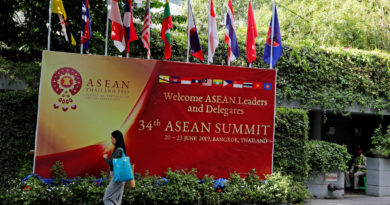A shot of optimism in Covid-19 fight
The Straits Times says

A shot of optimism in Covid-19 fight
This began as the year of the coronavirus but there are good reasons to believe that it will end on a far more upbeat note as the year of science. Having already claimed over 230,000 lives, the pandemic is yet to show definite signs that it is on the wane. Many questions remain unanswered. Why do some Covid-19 patients show no symptoms while others need ventilators? How can a respiratory virus attack not just the airways but also the heart and nervous system? How efficacious are lockdowns and distancing rules? What scientific rigour must be applied to lift them?
.

What is extraordinary is the zeal with which thousands of scientists, doctors, researchers, pharmaceutical firms, healthcare agencies and multilateral organisations are addressing these questions. Dr Anthony Fauci, a key member of the White House coronavirus task force, stoked optimism this week when he said preliminary data had shown that Remdesivir, an anti-viral drug, speeds up the recovery of some patients. Although modest, it is an encouraging step towards finding the first treatment that works against the virus after evidence of benefits from hydroxychloroquine proved inconclusive. There is also progress on the vaccine front – the only sure-shot way for life to return to normalcy. Scientists in 19 countries are working on at least 95 vaccines. Late last month, the University of Oxford announced the launch of Britain’s first human trials for a vaccine. Even as these trials continue, the Serum Institute of India, the world’s largest vaccine manufacturer which produces 1.5 billion doses every year, has initiated production of the Oxford vaccine in order to save time. Likewise, the Beijng-based Sinovac Biotech, a few weeks into its human trials, has swung into producing 100 million vaccine doses a year. The Bill and Melinda Gates Foundation has announced it will build factories for seven different vaccines.
.

These efforts are not without risk. It can take up to 10 years to develop a vaccine that meets the standards for safety and immune response. Apart from the remarkable display of dedication, expertise and speed, what is singularly heartening about such ventures is that the competitive instinct that drives them has given way to exemplary collaboration. In another arena, American and Chinese scientists are working together, despite the ongoing war of words between their countries, to probe where the virus originated. This is critical to ensure that the pandemic does not recur. In the other 21st-century crises that rocked the globe – the Sept 11 terror attacks in 2001 and the 2008 financial crisis – nations pushed rivalries aside to embrace and advance the means to defeat a common threat. Now, too, leaders must take the long and broad view to support the urgent quest of scientists. Self-isolation is not the way to win this aspect of the fight.
.
.












